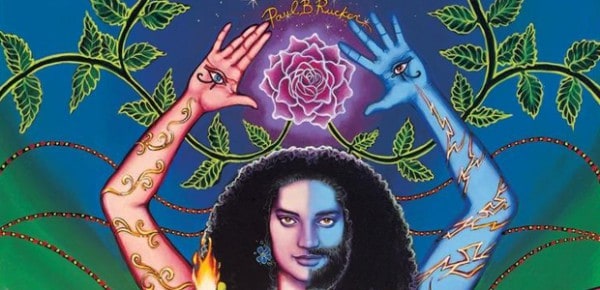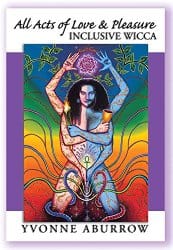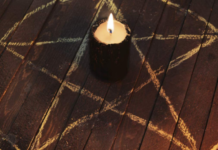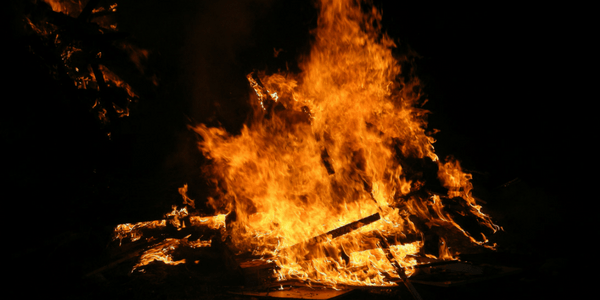
 All Acts of Love and Pleasure: Inclusive Wicca, by Yvonne Aburrow
All Acts of Love and Pleasure: Inclusive Wicca, by Yvonne Aburrow
Avalonia Books, 9781905297733, 276 pp., 2014
After writing “God, Goddess, and Other,” I felt skeptical that Wicca could be inclusive to the extent that I wanted it to be, and besides, I hadn’t identified as Wiccan for several years, so who was I to keep writing about it? In the end, I decided that my curiosity outweighed my skepticism, and went for it anyway. I had personal reasons as well. (Who doesn’t?) I miss certain aspects of Wiccan ritual, and am coming to the end of my resources as a solitary practitioner; I’m hoping to find enough common ground with the mainstream Pagan community to be able to join a coven or a grove. So, with these ideas and desires in mind, I began to read.
This is the first of Yvonne Aburrow’s works I’ve read, and I like her style. In works like this which deal with spirituality, sexuality, and social justice — deeply personal and often divisive things — there is a risk of coming across as pedantic, preachy, or defensive. Aburrow even expresses concern over this in the introduction, but I don’t think she has anything to worry about. She comes across as open and light-hearted, sharing information but never telling the reader to believe her. She successfully shifts between conversational and academic tones as needed, but the shifts never feel jarring or out of place.
I began reading this book with one question in mind: Can Wicca be inclusive toward queer identities and sexuality, to the extent that I would need it to be in order to feel not just tolerated, but valued? The answer, to my pleasant surprise, is yes.
Aburrow is an initiated Gardnerian Wiccan, and her practice is nothing like I imagined it would be. I learned that many of my concerns with Wicca — the heteronormativity, the gender essentialism, the rigidly defined dualities — are being challenged and can be reconciled, and are mostly reinforced by the American non-initiatory variety, which, as a solitary practitioner stranded in suburbia, was the only variety I had access to. (I was pleased to learn that duotheism isn’t a requirement either.)
Personally, I do not believe that there are ‘male energies’ and ‘female energies’ only; there is a multiplicity of different types of magical energy… Gender is far more complex than a singly binary, so reducing it to a simple binary is far too simplistic as a model for understanding it.1
Like the quote above suggests, Aburrow does not believe in a masculine/feminine dichotomy that defines everything. She suggests many different philosophies for understanding different energies and the nature of the universe. She also offers some very interesting alternative dualities for rituals that call for them (such as self and other, lover and beloved). She handles gender identity especially well. As someone whose gender travels all over the place, I often felt trapped by the rigid masculine/feminine dualism entrenched in some Wiccan traditions, but Aburrow’s philosophy and writing left me feeling welcome and accepted.
One oversight I did notice was that there wasn’t much in the way of discussing asexual and aromantic identities. In my article, I was hoping to find a way to discuss spirituality and sexuality that didn’t involve either sex-shaming or asexual erasure. I don’t think I was completely successful there, and I don’t think Aburrow is completely successful here. I predict that the Pagan community is going to need to work together as a whole on this one, and I’m interested to see where that conversation goes in the future.
Inclusive Wicca is about including all participants regardless of sexual orientation, disability, or other differences, not by ignoring or erasing the distinctions, but by working with them. Different people have different experiences, expectations, and perspectives, and including and working with different ideas and experiences can only enrich our Craft, not detract from it.2
That said, I was very eager to see the inclusivity promised by the title, and Aburrow delivered. In addition to her open and accepting view of gender and sexuality, she is understanding and accommodating towards people with disabilities. She gives several examples of situations that might cause difficulties, and I was pleased to see how diverse and well thought out they were. A person with dyslexia would have a difficult time copying out a Book of Shadows by hand, as is traditional. A survivor of sexual violence might be triggered by scourging or working skyclad. Someone with arthritis might not be able to kneel or dance for long periods of time. Aburrow’s position is compassionate and respectful; she doesn’t want to remove all the challenging and transgressive aspects of Wicca, but at the same time doesn’t advocate making someone do something harmful and spiritually unfulfilling in the name of “tradition.”
The advice she gives in these situations seems simple, but you’d be surprised how rare it is to see these issues addressed, and how effective the proposed suggestions can be. All you have to do is listen. She gives an example of asking the person with dyslexia if there’s a better way for them to absorb the information in the Book of Shadows. The same principle applies to the others. Ask people what they need and listen when they tell you. Do what you can, and bring in outside help if you need to. Aburrow also stresses not to view these issues (and by extension, the people who bring them forward) as problems or burdens, but to value the change they bring. That, in my mind, is the essence of inclusivity.
Pagans are ambivalent about belief, and there is a complex interplay between concepts and experiences, theory and practice.3
Quite a bit of this book is dedicated to discussing the nature of reality and the interplay between science and spirituality. Aburrow’s attitude on the subject is much like mine, in that neither of us see the two as diametrically opposed, and think that they can inform and enhance each other. That viewpoint seems to be becoming more common, but it’s still refreshing to see.
She gives very good advice on compromising scientific and magical mindsets, dedicating entire chapters to examining the history and philosophy of both. Though these chapters (and most of the book) tend to focus more on theory and mindset than on specific inclusive practices, there are some in this section that stand out. In particular, I love the idea of the Great Rite being a metaphor for the first lightning that struck the primordial ooze, and there’s a set of elemental invocations for the scientifically inclined (including energy and space-time as well as the traditional earth, air, fire, and water) that were an absolute treat to read, and which I plan on incorporating into my own practice.
Much of the discussion I’ve seen online about inclusivity hinges on the belief that the more people and viewpoints are incorporated, the more “watered down” a practice becomes. Throughout All Acts of Love and Pleasure, Aburrow soundly disproves that notion. She shows how different identities and philosophies can come together with surprising and beautiful results. It has me considering going back to my roots and incorporating Wicca back into my practice which, considering my skepticism and occasional bitterness towards it for the past several years, is no mean feat on Aburrow’s part.








